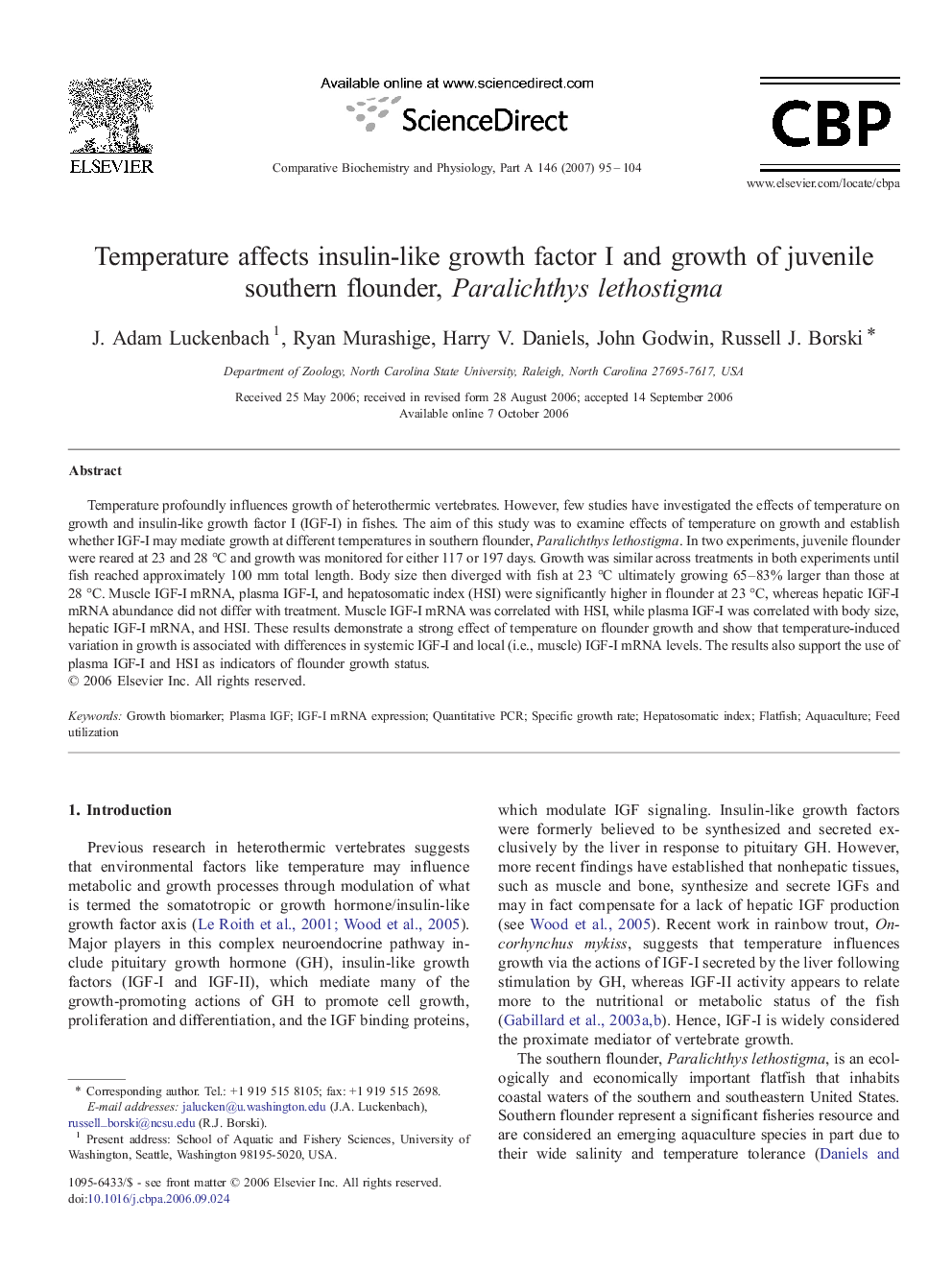| Article ID | Journal | Published Year | Pages | File Type |
|---|---|---|---|---|
| 1974910 | Comparative Biochemistry and Physiology Part A: Molecular & Integrative Physiology | 2007 | 10 Pages |
Temperature profoundly influences growth of heterothermic vertebrates. However, few studies have investigated the effects of temperature on growth and insulin-like growth factor I (IGF-I) in fishes. The aim of this study was to examine effects of temperature on growth and establish whether IGF-I may mediate growth at different temperatures in southern flounder, Paralichthys lethostigma. In two experiments, juvenile flounder were reared at 23 and 28 °C and growth was monitored for either 117 or 197 days. Growth was similar across treatments in both experiments until fish reached approximately 100 mm total length. Body size then diverged with fish at 23 °C ultimately growing 65–83% larger than those at 28 °C. Muscle IGF-I mRNA, plasma IGF-I, and hepatosomatic index (HSI) were significantly higher in flounder at 23 °C, whereas hepatic IGF-I mRNA abundance did not differ with treatment. Muscle IGF-I mRNA was correlated with HSI, while plasma IGF-I was correlated with body size, hepatic IGF-I mRNA, and HSI. These results demonstrate a strong effect of temperature on flounder growth and show that temperature-induced variation in growth is associated with differences in systemic IGF-I and local (i.e., muscle) IGF-I mRNA levels. The results also support the use of plasma IGF-I and HSI as indicators of flounder growth status.
